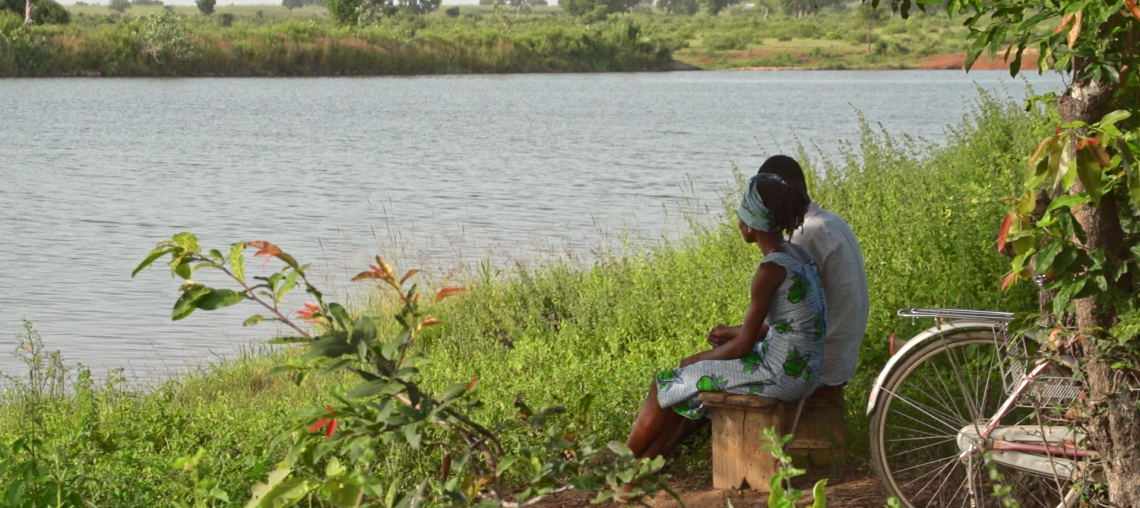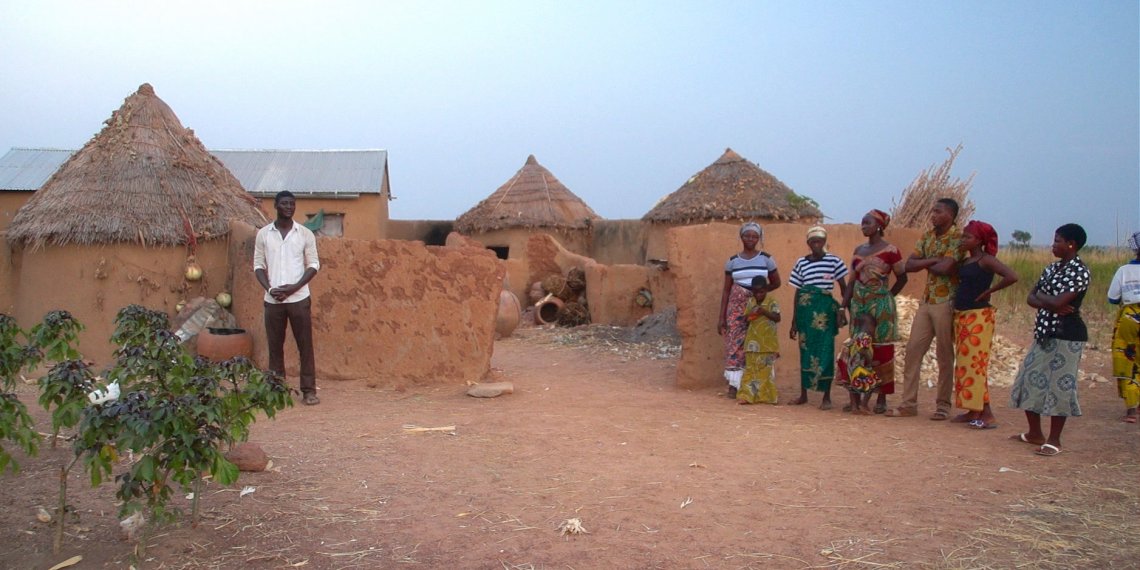Inasmuch pictures are timeless, the abundance of films tends to make a lot of them forgettable. However, when a film is good, its taste stays in your mouth and lingers in your thoughts. Nakom is a film with such potential despite its small budget, simple plot and amateur cast. The Ghanaian film grabbing attention internationally was produced after a successful Kickstarter campaign by Rasquaché Film Productions . It is a thorough examination of hope in the mist of love and is certainly made of timeless stuff.

The film, directed by Kelly Daniela Norris and T. W. Pittman takes its title from the little village in the Northern Region of Ghana where it is shot. Iddrisu Awinzor, played by Jacob Ayanaba, a bright medical student is rudely plucked from the freedom and opportunity of his campus life to become the family head after his father dies. A communal responsibility descends on him. With a keen, observant and unobtrusive lens, Nakom exposes the nuances of survival in this social context. We are drawn into the main character’s reality by his infectious and affable personality and we watch how Iddrisu attempts to steer his family clear of impending poverty whilst tending to his own ambition.
The story is set in motion by an uncontrollable event, the death of Iddrisu’s father and the rest of the 90 minutes of film sees the main character in a godlike manner attempt to take charge of his family’s existence. Like most families in Northern Ghana, their onion farm is the primary source of income and Iddrisu must pause his education to help them cultivate the farm and pay off their debts. This simplistic and straightforward plot allows the story to flow fluidly and brings other elements of life in rural Ghana into focus. Drama fades into the background and seemingly trivial yet substantive issues like healthcare, access to resources and employment begin to pull the strings. The question of the main character’s education hangs in the balance as he selflessly looks to provide for his family and postpones his own dream of studying medicine in America. The conflict that exists withini Iddrisu is the major source of tension in the film. His ambition and drive resonates with the audience, but at the same time, you cannot stop asking yourself if he should sacrifice himself to save his family from debt and poverty or move on and fulfill his dreams?

Completed by an acoustic and eerie kora and guitar score by Daby Balde, Nakom sheds a broad and bright spotlight on Northern Ghana, a vast area with many different and distinct cultures, plagued by baffling stereotypes and misrepresentation as most of the film is shot in a little farming village at the north-eastern tip of the country. The directors’ incorporation of well coloured wide-angle shots express the beauty of the grassland Sahel-Sahara terrain, mud brick and conical thatch roof architecture in its brown and orange hued splendour. These stunning picturesque scenes add to the rustic allure the film possesses. The rich beautiful and eye-catching culture of the Kusasi, inhabitants of Nakom is the core fibre used to weave this familiar tale. Through the death of Iddrisu’s father and the ensuing funeral, different facets of Kusasi culture from the family structure to music and dance are superbly highlighted, the most prominent being the place of the woman. The female characters must painfully acquiesce to the decisions the male characters take to the extent that Iddrisu’s sister, Damata (Grace Ayariga) has to stay at home because only one for them can afford to go to school. There is no active resistance to this patriarchal society order shown with most of the men having primitive ideas of the place of the women. The main character is the only one who looks to display some respect for the opinions of his mothers and sisters.
Except for the opening scene, all the dialogues in the film are in Kusaal with English subtitles. This decision does not only boost the accuracy of the film but also aides the job of the band of amateur actors who perform well. The main cast fit perfectly into their roles, as the scenes do not deviate from the lives they are used to.

Nakom is a slow burning fuse but still explosive. The plot unravels in a patient and almost tedious manner, yet, develops ideas and challenge notions. The filmmakers who are foreigners to the story, despite writing the script with Isaac Adakudugu, do not even pretend to claim ownership of the story but tell it as it is. As such, it does not rub you in the wrong way as poverty porn or just another village film about ill-fated love. The cliché story of trying to rise from poverty in the face of hopeless desperation cannot be overlooked because it is the story of real people reduced to dots on a map and footnotes in outdated tourist guides.

Nakom’s international success after being hosted at many film festivals including the 2016 Berlinale (the first Ghanaian film to achieve this) is proof that old and new stories when told properly can be compelling. The contagious nature of the ambition and hope Iddrisu exhibits bears a resemblance to the urge for survival shown in the 2004 South African Drama, Yesterday, and will infect anyone who engages with this film. It further reinforces the idea that representation matters and although the fate of Iddrisu and his family is not new or unique, the way in which it unravels leaves you no choice but to feel their pain.
—
Written by Hakeem Adam
Edited by Sally Vusi
Photo Credit: Stills from the film


1 Comment